Wales coach Warren Gatland faces questions after defeat by All Blacks
- Published
- comments
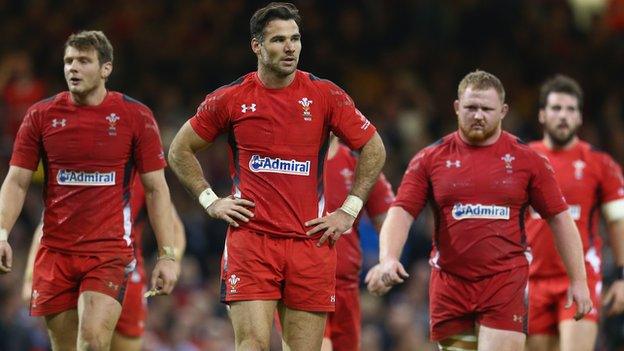
Wales have now lost their last 22 matches against New Zealand, South Africa and Australia
What defines a great team?
Not just the ability to win big, or win regularly, or take home trophies. Teams do that every year across every sport.
What the very best can do that the pretenders cannot is win the tight ones - not just occasionally, or with a little luck, but with such regular dead-eyed poise that it is as much a habit as tying up bootlaces or shaking hands at the close.
There could be no surprise in New Zealand's 34-16 win over Wales at a first raucous and then silenced Millennium Stadium. Here are three things that have happened since Wales last beat the All Blacks: the opening of Britain's first motorway, the debut single of Elvis Presley, the end of rationing.
Highlights: Wales 16-34 New Zealand
There were even those - Wales coach Warren Gatland among them - who chose to bemoan bad luck at inopportune moments, most noticeably the unkind bounce that beat Leigh Halfpenny and allowed Beauden Barrett to gather his own chip and put his side into a late lead that they would never relinquish.
That is to underestimate what sets this All Blacks team apart. Wales may have led 13-10 with 17 minutes to go and then 16-15 with 11 left on the clock. That they were then hit by a black-shirted blitz that yielded 18 points in seven minutes had nothing to do with fortune and everything to do with the gulf between the world champions and the rest.
For these late tornados are no freak occurrence. From Dan Carter's drop goal against Ireland in 2012 to Ryan Crotty's try in Dublin a year later, from Conrad Smith's try in the first Test against England this summer to Malakai Fekitoa's converted try against Australia in October, the All Blacks have made the point again and again: when the pressure is on, you will crumble, and we will thrive.
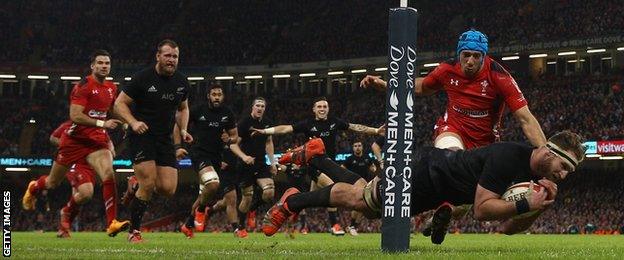
Wales led with 12 minutes to go before tries from Beauden Barrett and Kieran Read (above) took the match away from them
They are to rugby in this era what Sir Alex Ferguson's Manchester United were to football in the past two decades.
There is never a panic, never an urge to try something miraculous. There is just belief, a clinical composure and the physical and mental fitness to strike the critical blow at the decisive juncture.
Wales played with admirable passion and power for three-quarters of this frantic, error-strewn contest. But, the reaction of the All Blacks leaders afterwards spoke of the vast difference between nearly and never.
"I don't think that we wriggled off the hook," said coach Steve Hansen, almost bemused. "Games are played for 80 minutes and you've got to play for 80."
"It wasn't as if we were under the pump," said his record-breaking captain Richie McCaw. "We just had to hold the ball."
Gatland 'proud' of Wales in defeat
McCaw is not one for histrionics. In harness with Hansen he could win the Deadpan World Championships with room to spare.
For 60 minutes their team knocked the ball on, kicked it out on the full and were turned over repeatedly at the breakdown. They looked average, tired, uninspired.
It wasn't rugby rope-a-dope. Wales were ferocious when the ball was on the floor and up fast and furious when the opposition had it in hand.
They fought back once when Rhys Webb's snipe and gather of Taulupe Faletau's return pass cancelled out Julian Savea's try, and then again with forward power and Halfpenny's boot when Barrett's cross-field kick brilliantly set up Jerome Kaino for another.
At their backs they had a support as raging as anything in world rugby, the sort of partisan atmosphere that England coach Stuart Lancaster fantasises about creating at Twickenham. They even had a random half-time appearance from a show-boating David Hasselhoff ("New Zealand gave us the haka. Later we'll give them the Hoffa!").
But in the key little moments it was Wales who stumbled and fumbled, New Zealand who accelerated into the distance.
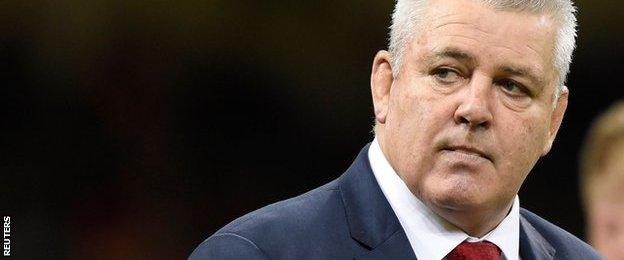
Gatland was appointed Wales coach in November 2007
With a lead of three and the ball deep in the All Blacks 22, Webb knocked on with men outside him. Halfpenny, with a kick to clear, chose instead to take the ball back into contact after a fine Welsh turnover and was himself stripped of the ball before Savea's score. Mike Phillips delayed his own clearing kick fractionally too long and Kieran Read charged it down for another.
The All Blacks? 17-stone hooker Dane Coles ran fast and straight down the left flank before drawing the covering tackle like a skinny wing wonder of old to feed McCaw in the build-up to Kaino's score.
It was simple, but it was also the sort of thing that only seems to happen to New Zealand tight forwards. Even their battering-rams can cut holes like a fencer's foil.
Autumn Internationals: David Hasselhoff reveals love for Welsh rugby
It is 61 years and counting now for the men in red against those in black, 26 defeats stretching back in a long row to the year when Everest was first scaled and Queen Elizabeth crowned.
Gatland is responsible only for the last seven of those, but he has now lost 22 straight matches against the southern hemisphere big boys of New Zealand, Australia and South Africa. He has seen his side concede an average of 23 points in their last 11 Tests.
This is also now Wales's worst set of results in a calendar year since 2010, when they managed only two wins from 12. A year later, of course, they were a late penalty away from reaching the World Cup final, and Gatland - winner of two Grand Slams in his tenure, beneficiary of a long-term and lucrative contract - could yet oversee a similar renaissance.
But, with every passing week, his greatest challenge at that World Cup appears to be getting out of that demolition derby of a group that also includes England, Australia and Fiji.
Ireland have been reinvigorated under Joe Schmidt, Scotland revitalised by Vern Cotter. Wales are resolutely Gatland's Wales: physical, combative, often predictable.
"I can't ask the players to give any more than they did today," said Gatland on Saturday night.
He will have to. Because at the level this team aspires to, they are consistently, if bravely, falling short.
- Published22 November 2014
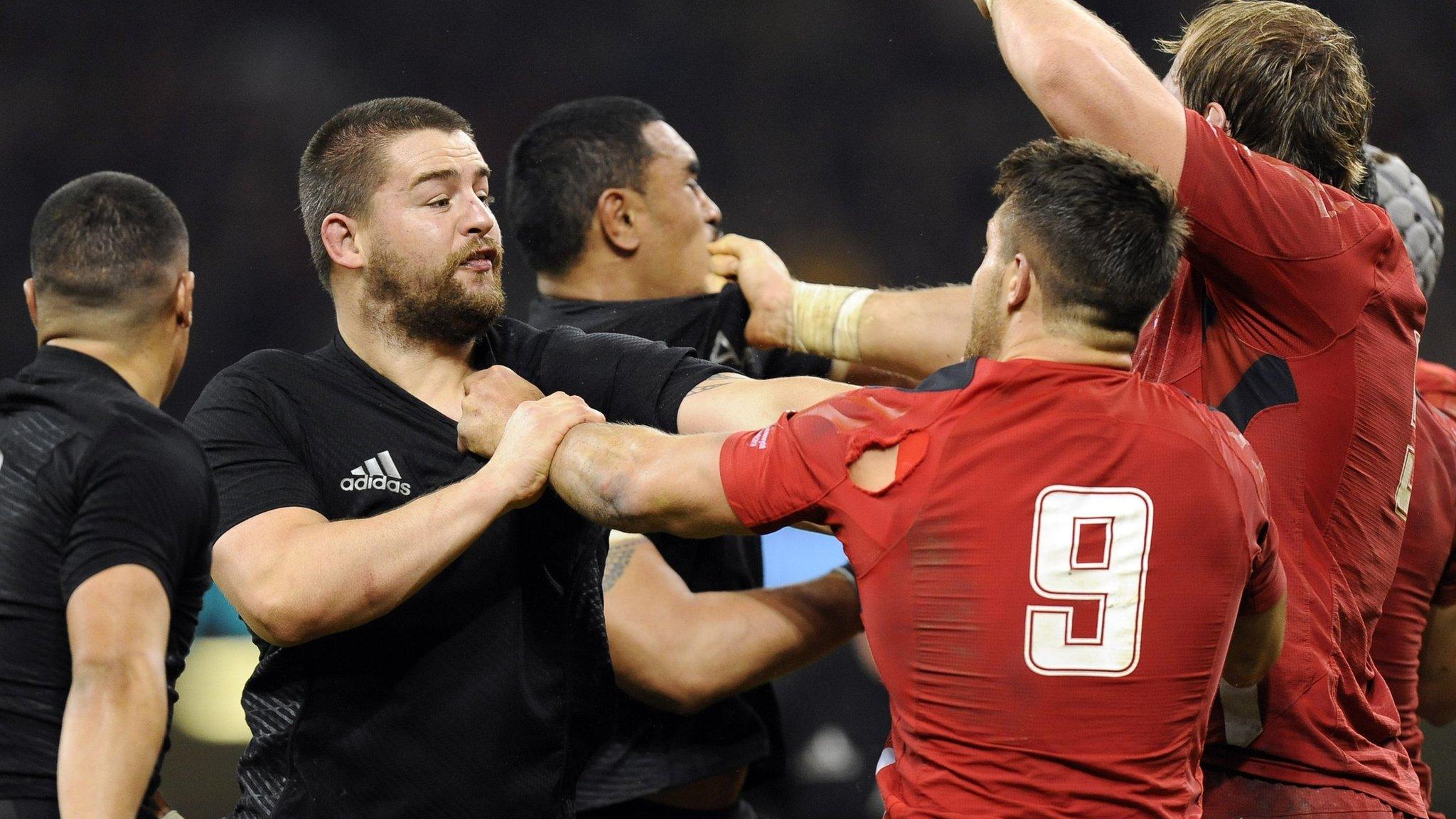
- Published21 November 2014
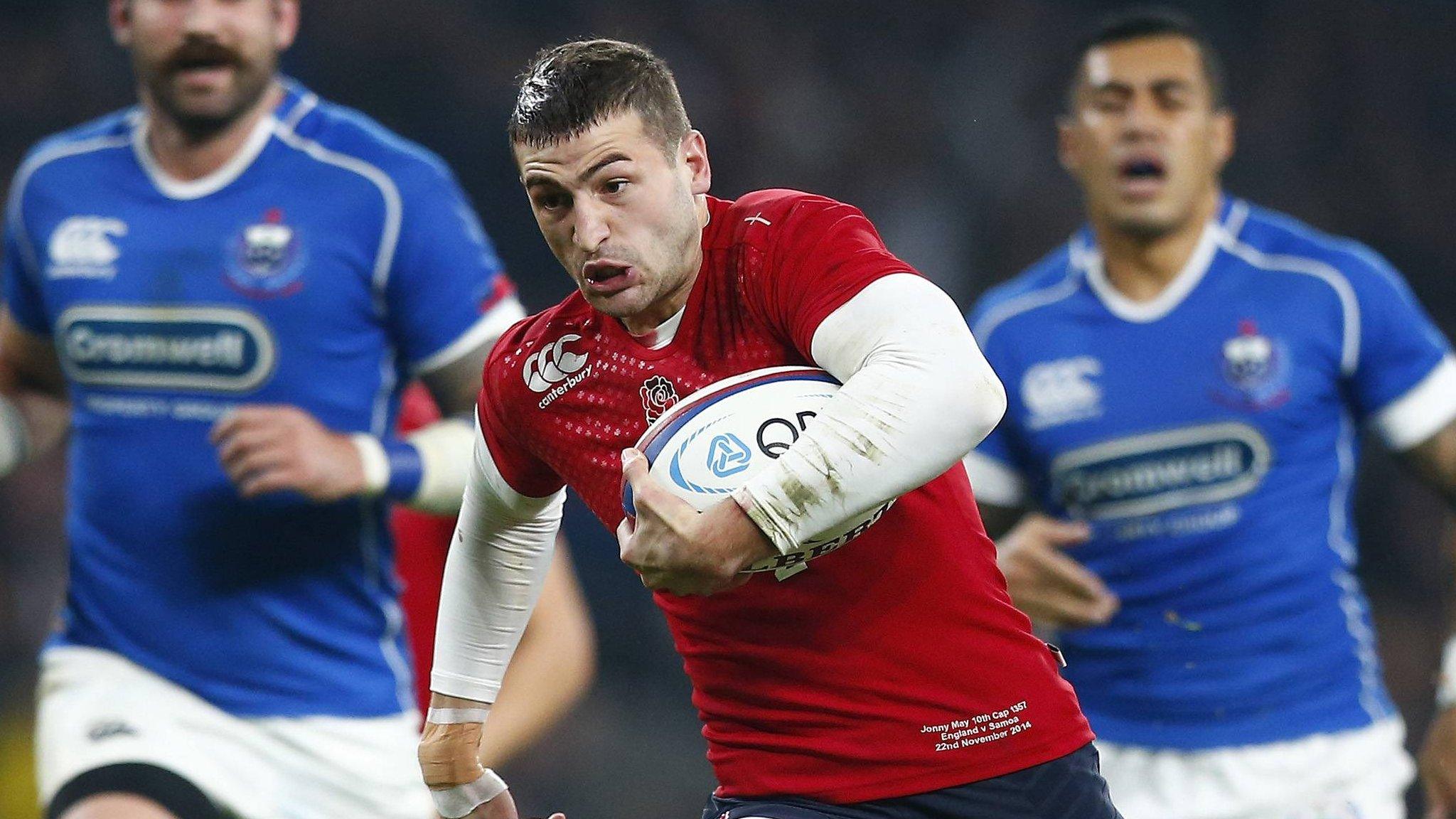
- Published22 November 2014
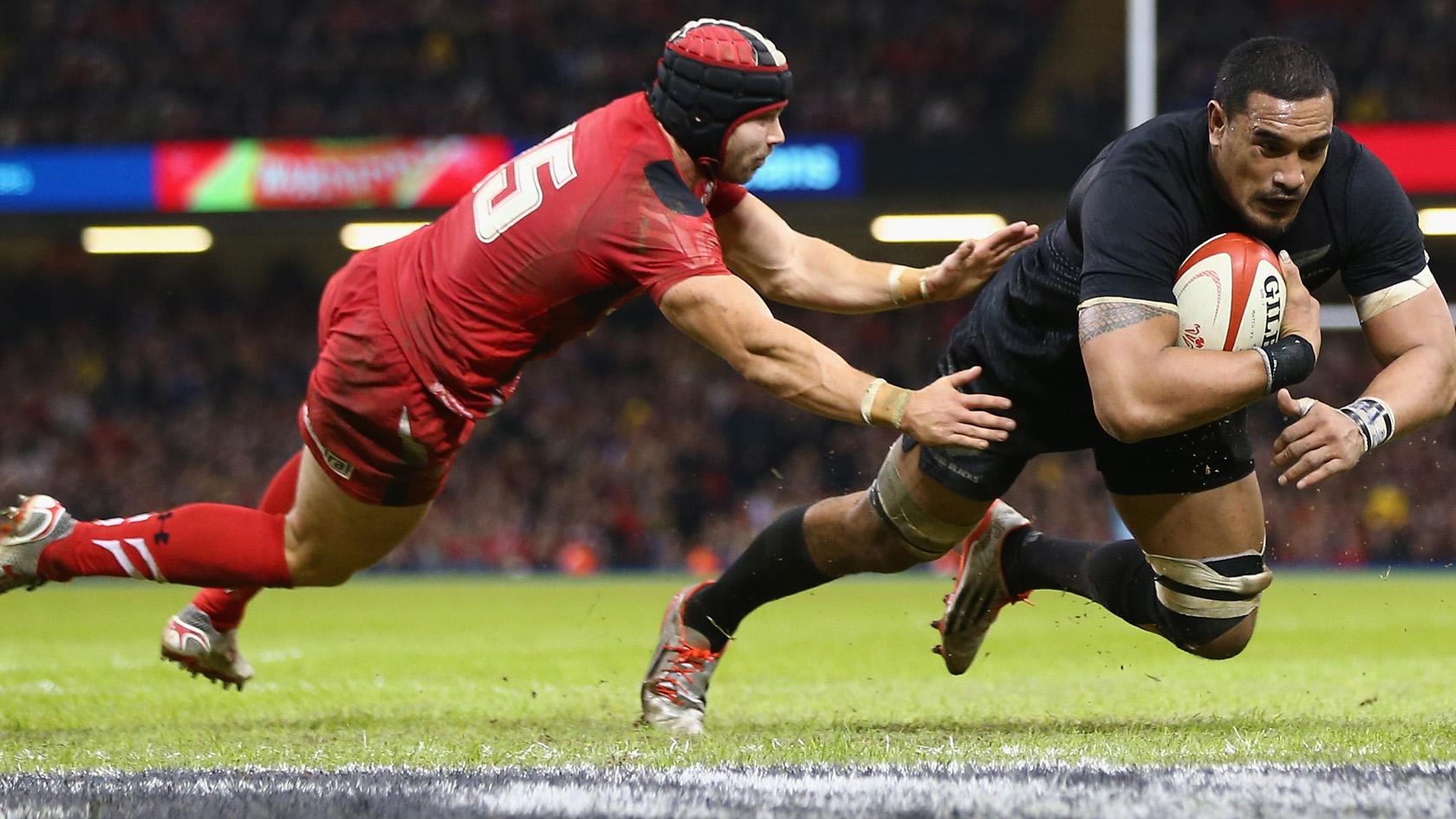
- Published15 February 2019
